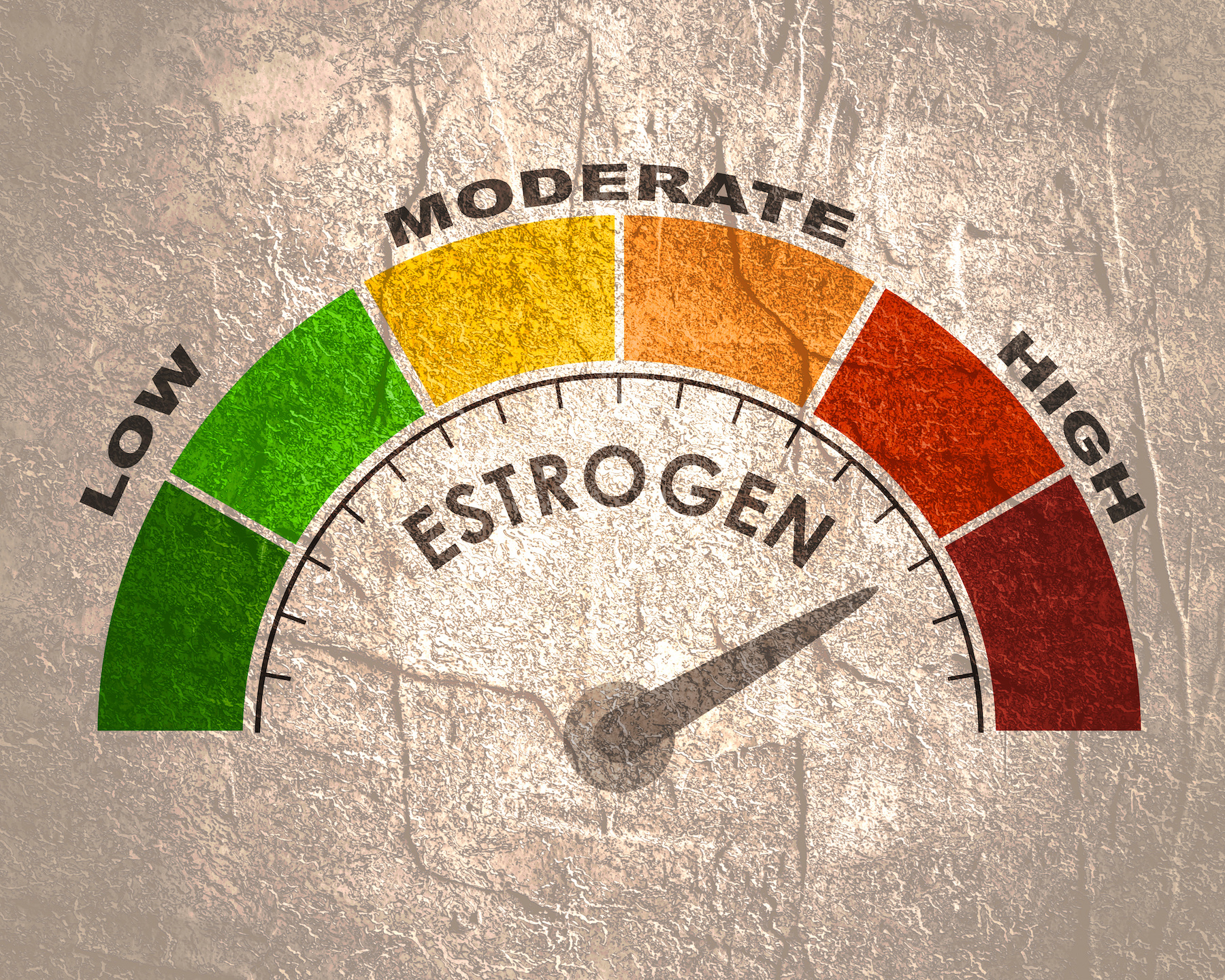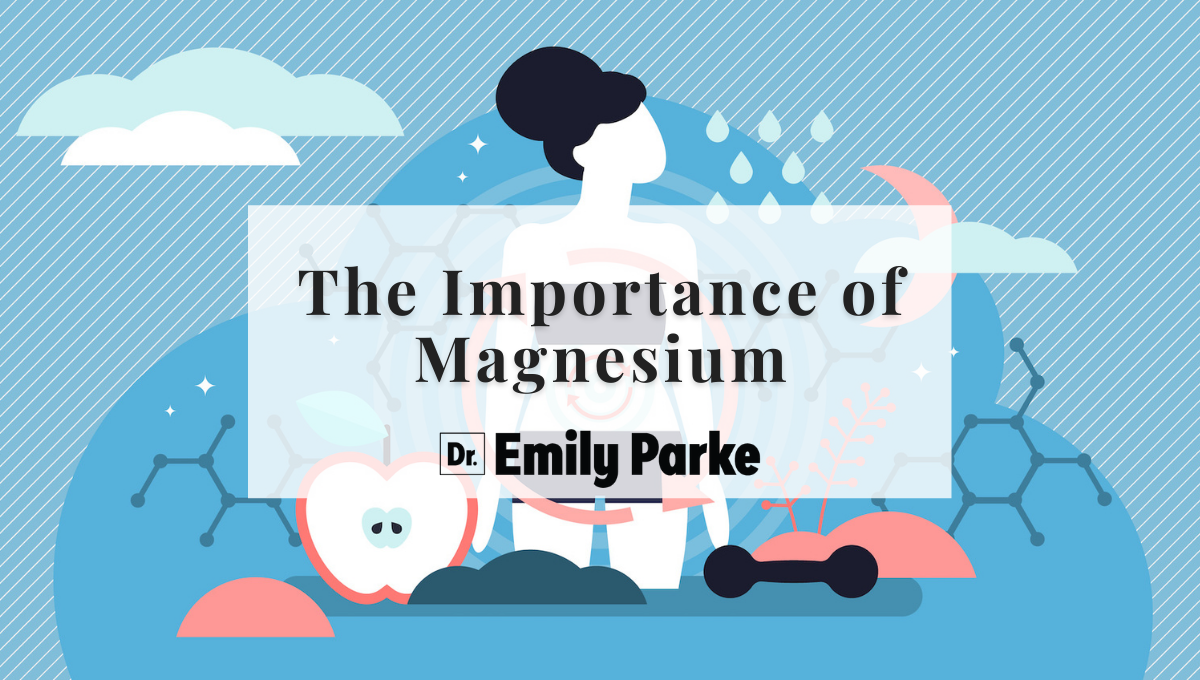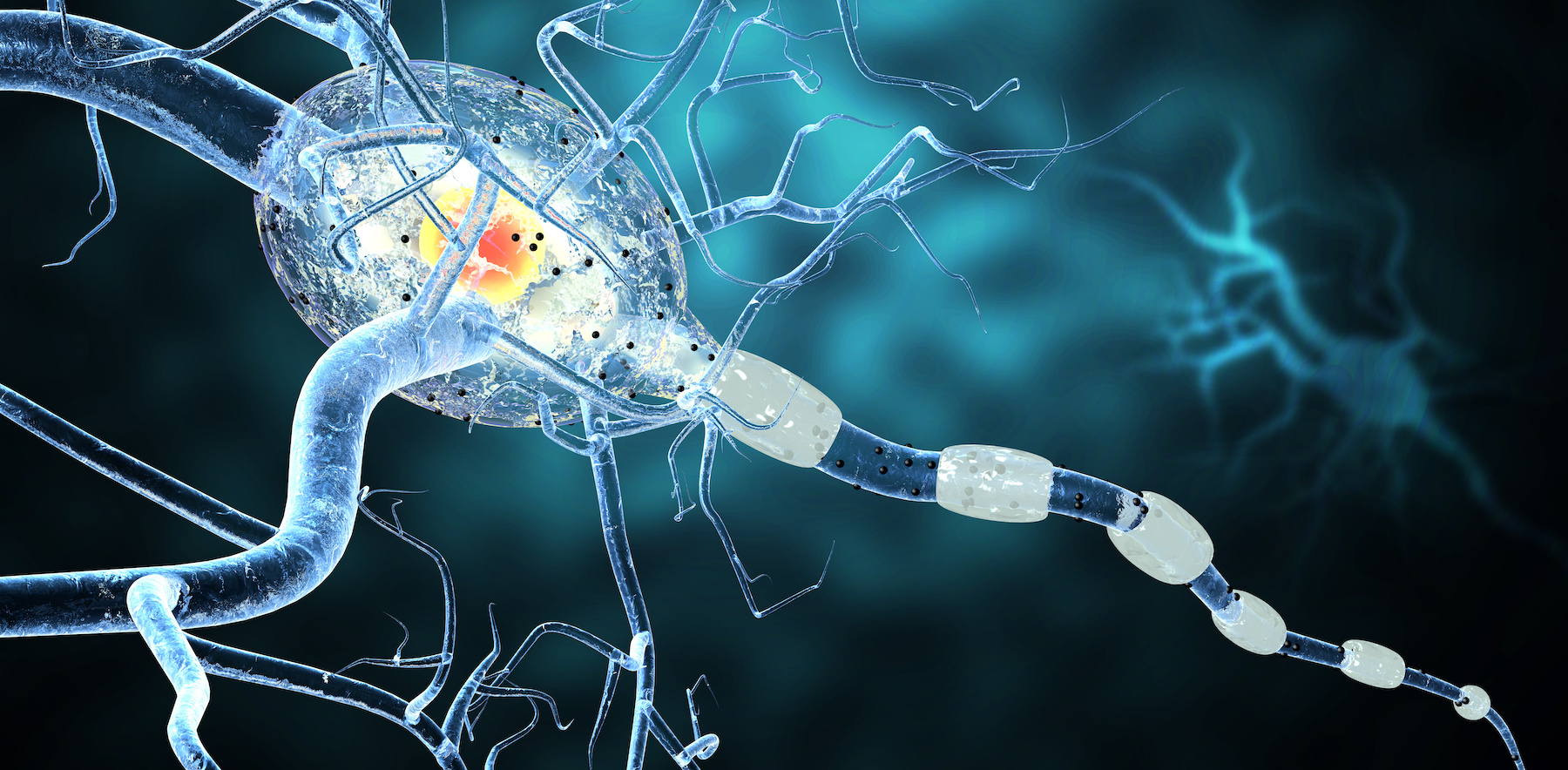

Hi, this is Dr. Emily Parke with today’s Functional Health Minute. I’d like to take a couple of seconds to talk about magnesium. And I’ve done some magnesium blogs before, but I want to talk about my two favorite magnesium products and why I like them so much.
Magnesium Complex
So the first product I like to use a lot of is this magnesium complex, and it’s called complex because it has a couple of different forms, actually three different forms of magnesium in it. It has magnesium malate. So you might remember from a previous blog, M, malate, muscle. So it can help with muscle soreness. It also has magnesium glycinate, which is a good general form of magnesium. Magnesium glycinate also has some really nice relaxing properties. I like to use it before I sleep. And then of course, it has a little bit of magnesium citrate in it. And you might remember, C, citrate, colon. So those that have a little bit of constipation. But this, I like to use, again, a combination of three different types of magnesium for general magnesium replacement.
The Importance of Magnesium
And magnesium is important for many different metabolic processes in the body, over 300 different enzymatic reactions require it. It’s actually really important for a lot of things you might not think of, like it’s important for your immune system function. It actually helps vitamin D work better, for example, and we know vitamin D is so, so important for the immune system. But other reasons why someone might take magnesium is, besides, obviously, that it is one of the most common nutrient deficiencies out there, it’s estimated that about 85% of the population has, a less than perfect magnesium level and could use some, but magnesium is really great for not just muscle soreness, it can be great for insomnia, it can be great for anxiety, it can be great for constipation. If anyone’s having some muscle cramps or spasms, leg cramps, those kinds of things, a lot of times magnesium is helpful for those. But headaches and migraines, it can also be really, really helpful for.
I could go on and on, there’s so many really great things that magnesium is important for, including hormonal health too. So with thyroid hormones, magnesium is one of the more important nutrients to help with proper conversion of T4 to T3, which is your most active thyroid hormone. Magnesium is also really important for blood sugar management, so those that have a pretty significant magnesium deficiency, who just replace the magnesium, a lot of times will get a little bit better blood glucose control. So those are just some examples of why you want to overall replace magnesium.
Magnesium Glycinate
Then there’s magnesium glycinate powder, it’s actually a yummy strawberry flavor. And when I like to use this is before bed. So my people that have trouble winding down before bed, whether it’s actual insomnia or just anxiety, or just you have trouble kind of shutting your brain down, the glycine, so magnesium glycinate, the glycine part of the magnesium is also really helpful for relaxation and actually helping to lower body temperature a little bit. So you get the nice relaxation benefits of magnesium and the other benefits of glycine too. So those are my two favorite magnesium products.
Magnesium L-threonate
And then, of course, there are other forms of magnesium. There’s a magnesium L-threonate, which is good for brain function. So those with cognitive decline or anything brain related, we like to use some magnesium L-threonate, which is really great. Then there’s also topical forms of magnesium. So if you are someone whose GI tract cannot tolerate magnesium, by the way, we will all get some loose stools if we overdose ourselves on magnesium, so if you take too much at once, you can get some loose stools or diarrhea. And so the first thing you do is split up your dosages. And if that doesn’t help, then of course, you’re going to want to end up lowering the overall dosage for you. But yes, we can actually absorb a lot of magnesium through our skin.
So another common recommendation I’ll give patients is to take Epsom salt baths or get a really high quality topical magnesium product. And there’s a couple different ways to do that. My favorite way is, you can get some good high concentration lotions, creams, and even foot soaks and bath soaks that you can do. There’s a company called Living The Good Life Naturally that makes a really high quality magnesium product. Actually, that matters, because it’s kind of tough to get a high enough concentration of magnesium into the solution to make a lotion, let’s say, that’s going to actually absorb through the skin, that doesn’t feel crusty or itchy. It’s a little bit challenging to do, and they actually do it really, really well.
And then, of course, there are magnesium-based deodorants also. So instead of those with aluminum, which you shouldn’t be doing anyway, because it’s more toxic, you can do a magnesium-based deodorant as well. So those are all ways I will use to get magnesium levels up. So there’s topical, absorbed through the skin, there’s pills, and then there’s, of course, magnesium powders. So this is Dr. Emily Parke with today’s Functional Health Minute.
Share:
Dr. Emily Parke
Social Media
Most Popular Posts
Subscribe To Our Newsletter
Related Posts

Estrogen Metabolism: How It Works, Why It Matters, and Supplements for Healthy Estrogen Metabolism
Estrogen metabolism is vital to estrogen regulation. Learn how it works and how the DUTCH test can provide insight into hormonal imbalance.

The Paleo Diet Versus the Autoimmune Paleo Diet: Differences and Benefits
Learn the difference between the paleo and the autoimmune paleo diet, including food lists, what foods to avoid, and all the health benefits!

A Complete View of Multiple Sclerosis: Symptoms, Diagnosis, and Functional Medicine Treatment Options
Get a complete view of multiple sclerosis, including common symptoms and treatment options, including nutrition and supplementation.

Headaches and How to Find Relief: The Functional Medicine Way
Learn about functional medicine headache treatment, various headache types, and how to achieve lasting relief with complementary approaches.
